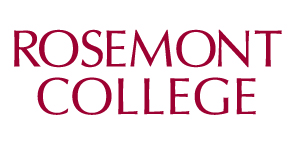Degree Requirements for a BS in Elementary Education with PK-4 and PK-12 Special Education Certification
The PK-12 Special Education Program MUST be paired with Rosemont's Elementary Education Degree/Certification program.
General Education Requirements (57-58 credits)
Elementary Education students are able, with the prior approval of the Director of Teacher Education, to apply 12 credits, four courses, of their Education requirements towards the General Education curriculum.
Required Education Courses
The course requirements below have been developed to meet the certification standards promulgated by the Pennsylvania Department of Education (PDE) In special circumstances the Director of Teacher Education may give permission to waive one or more pre-requisites. All students are required to take EDU 0455 Student Teaching Seminar.
Development, Cognition, and Learning (12 credits)
Core Course: A study of models, techniques, and skills of teaching and learning through observation and analysis of the inclusive, regular, and diverse classroom and related settings. Topics include management, motivation, and instruction and The Danielson Model. Competencies for the inclusive classroom are addressed. Prerequisite: Limited to Education majors. (3 credits)
Subject Matter Pedagogy Content (27 credits)
Sed egestas, ante et vulputate volutpat, eros pede semper est, vitae luctus metus libero eu augue. Morbi purus libero, faucibus adipiscing, commodo quis, gravida id, est. Sed lectus. Praesent elementum hendrerit tortor. Sed semper lorem at felis. Vestibulum volutpat, lacus a ultrices sagittis, mi neque euismod dui, eu pulvinar nunc sapien ornare nisl. Phasellus pede arcu, dapibus eu, fermentum et, dapibus sed, urna.
An overview of current program models and learning theories in early childhood education, with emphasis given to how social, cultural, and political issues impact practice. A key component of this course is developing in students and understanding of how child development relates to effective early childhood education. Competencies for the inclusive classroom are addressed. Prerequisites: limited to Education majors. (3 credits)
Assessment (6 credits)
This course will include an examination of the various forms of group testing, both standardized and classroom. Students will also learn how to read and interpret test results and how to apply that knowledge to classroom and individual instruction. Basic statistical concepts such as median, mode, standard deviation, etc. will be covered, as will the ways in which statistics may be used appropriately and ethically in the educational setting. Competencies for the inclusive classroom are addressed. Prerequisite: EDU 0201 (3 credits)
Family and Community Collaborative Partnerships (3 credits)
There are three primary foci: students will learn about the role, both educational and social, of the school in modern society, the fundamentals and diversity of family structure in America today, and the dynamics of family/school interaction. In addition, they will learn about the myriad social service resources available to support schools and children in America. Emphasis will be placed on ways in which teachers and schools can foster community partnerships which benefit students and their families. Prerequisites: None (3 credits)
Professionalism (6 credits)
A course designed to acquaint the student with the basic concepts and principles of elementary and middle grades curriculum. Emphasis is on methods, planning for diversity, inclusion, and differentiation of instruction. Competencies for the inclusive classroom are addressed. Prerequisites: Limited to Education majors; EDU 0201. (3 credits)
**Denotes a course that can fulfill General Education requirements.
Additional Requirements (12 credits)
Students must demonstrate that they have competencies related to adaptations and accommodations for diverse students, that is, students with disabilities, gifted students (9 credits) and ESL students (3 credits).
This course will provide students with a foundation in the organization and management of an effective classroom. Students will learn how to create and maintain a positive learning environment at every level, as well as specific techniques for managing a variety of student behavioral issues. Issues of respect, cultural diversity, and appropriate behavioral expectations will also be covered. Competencies for the inclusive classroom are addressed. Prerequisites: limited to Education majors. (3 credits)
American Sign Language (6 credits)
An introduction to American Sign Language, covering the relationship between manual and oral language systems, the implications of deafness on communication, and the philosophy of total communication. Offered as needed. (3 credits)
Student Teaching
Students will complete 12 credits of student teaching requirements.
